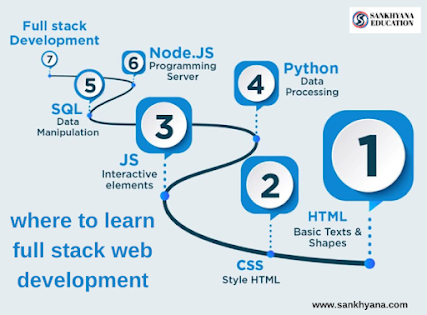Data Science for Everyone: How to Get Started
Data Science for Everyone: How to Get Started
Data science is a journey that anyone with curiosity and dedication can embark upon.
Introduction
In our rapidly evolving digital world, data has become the lifeblood of businesses, governments, and organizations of all sizes. The ability to analyze and derive insights from data has led to the rise of a field known as data science. Data science empowers decision-making, unveils patterns, and creates predictive models that drive innovation and efficiency across industries. Contrary to popular belief, you don't need to be a math genius or a computer whiz to embark on a journey into the world of data science. This blog will guide you through the steps to get started with data science, regardless of your background.
1. Understand the Basics
Before diving into data science, it's important to grasp the fundamental concepts that underlie the field. Start by familiarizing yourself with key terms such as data, datasets, variables, and algorithms. Develop a basic understanding of statistics, including concepts like mean, median, standard deviation, and correlation. This knowledge will form the foundation for your data science journey.
2. Learn Programming
Programming is an essential skill for any aspiring data scientist. While there are several programming languages used in data science (Python and R being the most popular), Python is often recommended for beginners due to its simplicity and widespread adoption in the field. Online platforms like Codecademy, Coursera, and edX offer interactive courses that teach Python programming from scratch.
3. Embrace Data Analysis and Visualization
Data analysis involves extracting insights from raw data using various techniques. Start with basic data manipulation using libraries like Pandas in Python. Learn how to clean and preprocess data, handle missing values, and perform exploratory data analysis (EDA) to uncover patterns and trends. Visualization tools like Matplotlib and Seaborn can help you create compelling graphs and charts to communicate your findings effectively.
4. Dive into Machine Learning
Machine learning is a subset of data science that involves training algorithms to learn from data and make predictions or decisions. Start with supervised learning, where models are trained on labeled data to make predictions. Linear regression and decision trees are great starting points. As you progress, explore more complex algorithms like random forests, support vector machines, and neural networks.
5. Hands-On Projects
Theory is important, but hands-on projects are where you truly solidify your skills. Work on real-world projects using publicly available datasets from sources like Kaggle. Start with small projects and gradually move on to more complex ones as your confidence grows. Document your process and results in a portfolio to showcase your skills to potential employers.
6. Online Resources and Communities
The data science community is vibrant and supportive. Engage with online platforms like Stack Overflow, Reddit's r/datascience, and LinkedIn groups to seek help, share your knowledge, and stay updated on the latest trends. YouTube and blogs also offer a wealth of tutorials and insights from experienced data scientists.
7. Continuous Learning
Data science is a rapidly evolving field, so continuous learning is key. Stay updated with the latest research, tools, and techniques by reading research papers, attending webinars, and enrolling in advanced courses. Platforms like Fast.ai, Coursera, and Udacity offer specialized data science courses to help you stay ahead.
8. Build a Strong Foundation in Mathematics
While you don't need to be a math prodigy, a solid understanding of mathematics can greatly enhance your data science skills. Brush up on concepts like linear algebra, calculus, and probability. Khan Academy and MIT OpenCourseWare offer excellent resources to help you build your mathematical foundation.
Conclusion
Data science is a journey that anyone with curiosity and dedication can embark upon. By understanding the basics, learning programming, mastering data analysis, delving into machine learning, working on hands-on projects, engaging with the community, and committing to continuous learning, you can gradually build a strong skill set in data science. Remember, the field is all about exploration, creativity, and problem-solving. So, take the plunge, and you might just find yourself unlocking the insights hidden within the vast world of data.
.png)

.png)
.png)
Comments
Post a Comment